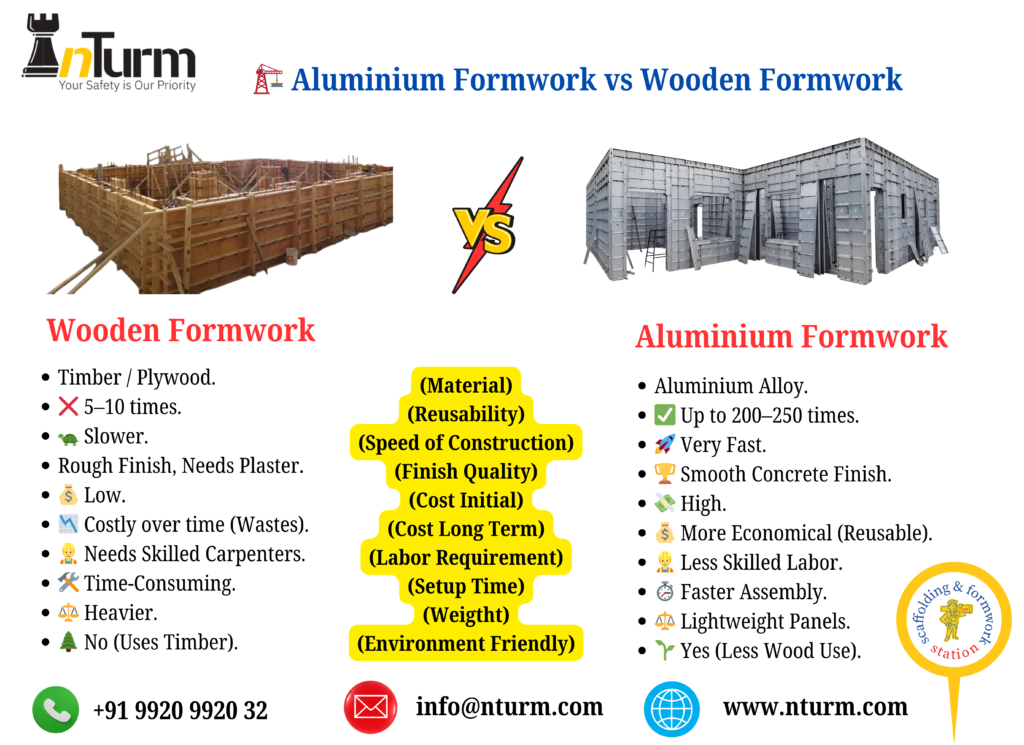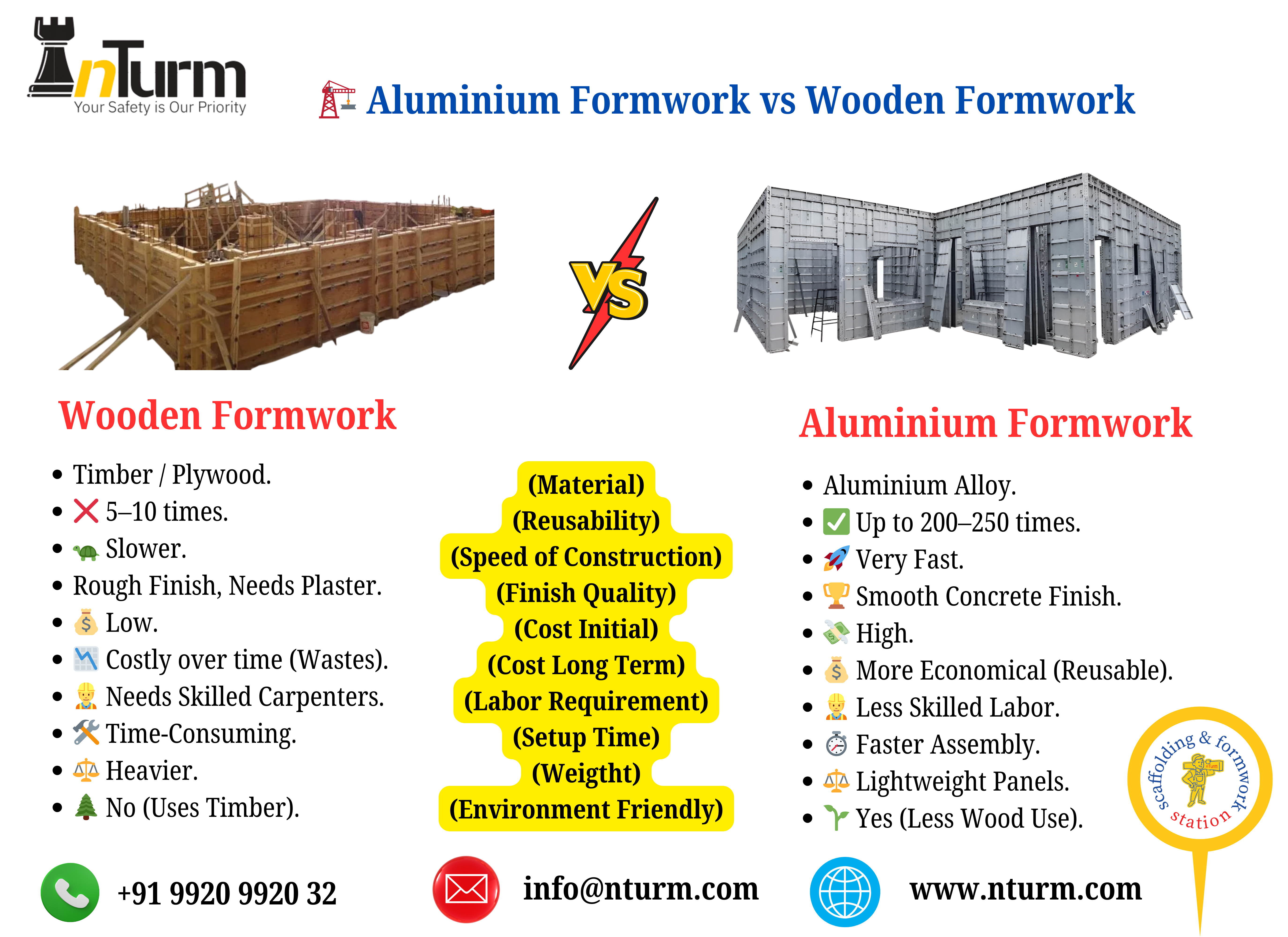
Aluminium Formwork vs Timber Formwork: Which Offers Better Value?
In the construction industry, formwork plays a vital role in shaping concrete structures. Choosing the right type of formwork can impact not only the project’s budget but also the timeline, quality, and long-term durability. Two of the most commonly used types are aluminium formwork and timber (wooden) formwork.
But when it comes to value, which one stands out? In this blog, we’ll compare aluminium and timber formwork across key factors like cost, reusability, labor, durability, and environmental impact to help you make an informed decision.
What Is Formwork?
Formwork is a temporary or permanent mold into which concrete is poured to create structural elements like walls, slabs, columns, and beams. The choice of formwork influences not just the structural integrity but also the efficiency of the entire construction process.
Overview: Aluminium Formwork
Aluminium formwork is a modern construction system made from high-strength aluminum alloy. It is lightweight, easy to assemble, and ideal for repetitive casting of similar structural designs, especially in high-rise buildings and mass housing projects.
Pros of Aluminium Formwork:
- High Reusability: Can be reused over 200 times with proper handling.
- Speed: Speeds up construction due to easy installation and striking.
- Precision: Provides a smooth, consistent concrete finish.
- Durability: Resistant to corrosion, damage, and deformation.
Cons:
- High Initial Cost: Significantly more expensive upfront.
- Limited Flexibility: Not ideal for complex, non-repetitive designs.
Overview: Timber (Wooden) Formwork
Timber formwork, one of the oldest types of formwork, uses plywood and wood planks. It is widely available and easy to modify, making it suitable for small-scale or customized projects.
Pros of Timber Formwork:
- Low Initial Cost: More affordable than aluminium.
- Versatile: Can be cut and shaped easily for unique or irregular designs.
- Readily Available: Materials are widely accessible in most regions.
Cons:
- Low Reusability: Typically reusable only 5–10 times.
- Labor Intensive: Requires skilled carpentry and more manual labor.
- Prone to Damage: Can warp, absorb moisture, and degrade quickly.
Cost Comparison
| Aspect | Aluminium Formwork | Timber Formwork |
|---|---|---|
| Initial Investment | High | Low |
| Reusability | 200+ uses | 5–10 uses |
| Labor Costs | Lower (fast assembly) | Higher (manual, time-consuming) |
| Long-term Value | Excellent for large, repetitive use | Good for small or one-time use |
Verdict: While aluminium costs more initially, its long-term value outweighs timber for large or repetitive projects. Timber remains ideal for small-scale or budget-conscious construction.
Environmental Impact
- Aluminium is recyclable and produces less construction waste over time. However, its manufacturing process consumes more energy.
- Timber is biodegradable but leads to deforestation if not sourced sustainably and generates more site waste due to its limited lifespan.
Tip: Use FSC-certified timber and recycled aluminium to minimize environmental footprint.
Which Offers Better Value?
The answer depends on the scale, budget, and design of your project.
- Choose Aluminium Formwork if:
- You’re working on a large-scale or multi-storey building project.
- You need fast, repetitive casting with minimal labor.
- Long-term cost savings and precision are priorities.
- Choose Timber Formwork if:
- The project is small or highly customized.
- Budget is limited and reuse is not a concern.
- You’re working in remote areas with limited access to advanced systems.
Final Thoughts
Both aluminium and timber formwork systems have their strengths. While aluminium offers high reusability, faster construction, and better long-term value, timber provides flexibility and a lower initial cost. The key is to align your choice with the project requirements, budget, and timeline.
Looking to optimize your next construction project? Consult with a formwork expert or contractor to choose the most cost-effective and efficient system.

Leave a Reply